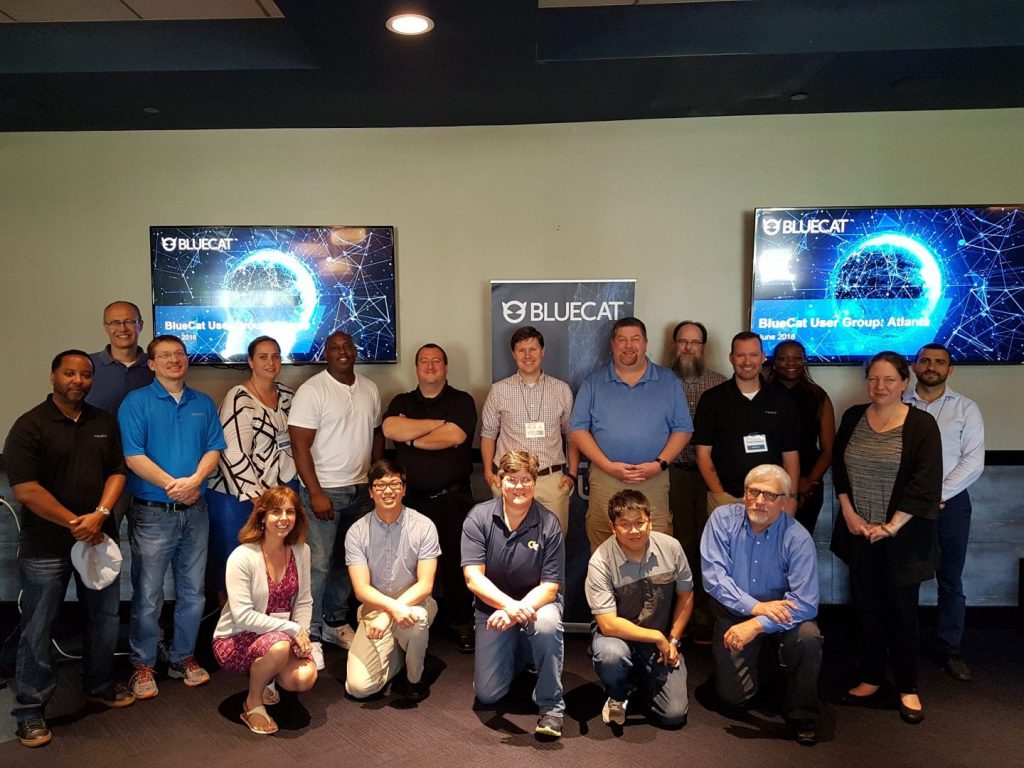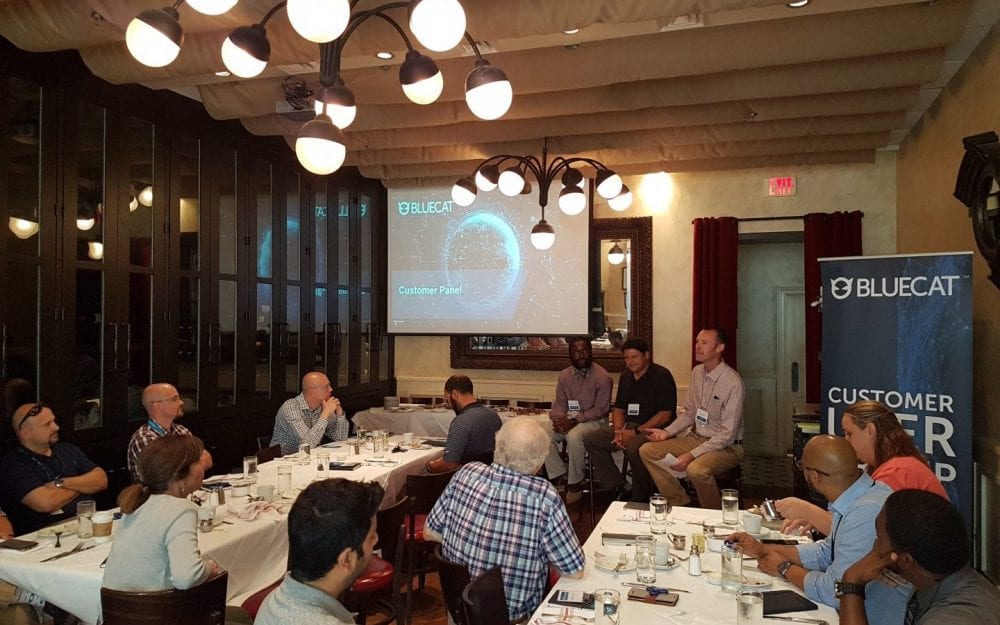Three User Groups, Three Chances to Reflect

As proud DNS geeks, doing our homework is something we’re quite accustomed to.
Recently, we hosted three BlueCat User Groups in order to get to know our customers better, gain valuable insights into how they are using Adaptive DNS and explore new ways in which we can continue to be a strong solution for their unique and growing needs.
So, what did we learn from our users this time around?

A snapshot from Raleigh, NC.
June 6, 2018: Toronto
Our trilogy began by welcoming our customers to our home base. As discussions began to ramp up, some key points stood out, with automation needs being a major one. For example, one customer brought up the headaches associated with managing large amounts of mainly wireless users; one example being the issue of multiple users going to sites that use up too much bandwidth – thus slowing down others. Another user mentioned their need for simplifying the provisioning of both public and private networks, which was of particular interest for our customers managing organizations that are frequently expanding, whether regional offices, stores or campuses. They were all looking to automation to help solve these problems.
This input provided us with some useful insight into where we should take our DNS Integrity Gateway product, which vastly improves DNS-related automated tasks. This also gave us an opportunity to educate users on how Gateway can help solve many of the complex business problems they were faced with. In discussing the benefits of automation for larger organizations, it was clear that many of our customers were finding themselves with the positive, yet nonetheless stressful concern of their networks needing to keep up with company growth. Automation has become a critical tool for their teams to remove many of the manual tasks of day-to-day so they can focus on growth-related initiatives.
June 19 2018: Atlanta
Given the previous feedback we received, automation and Gateway were at the forefront of our minds while going into our second session in Atlanta, so we were quite pleased to hear from a global home renovation company – the earliest adopter of Gateway, and a longtime awesome customer. They were incredibly happy with not only our product’s ability to automate processes, but our customer support as well, and were keen to note that they are now using Gateway for longer term strategic problem solving.
Aside from the curiosity regarding automation, there was also a large interest in security, with visibility into DNS being a specific issue that was brought up several times. Many of our customers mentioned that their cybersecurity teams are specifically interested in visibility into DNS data; DNS Edge was of major interest here, as it can help provide this easily. This was also a great opportunity to learn more about the specific security concerns that are on everyone’s minds.
June 20, 2018: Raleigh
Our final User Group brought us to Raleigh, where we once again received plenty of interest from many of our University-based customers regarding automation and Gateway – one of the biggest discussion topics was how can teams enable more users to be able to have access to APIs, but not necessarily the management layer, which is actually one of the core benefits of Gateway. At this point, it is quite clear that automation with campus networks is a must, and we were happy to answer any and all questions.
At this event we were also able to hear an important story on DNS bringing network and security teams together – a topic we’re always ready to talk about. In this presentation we learned of network and security teams, brought together by a need from the security team for more visibility into DNS. By working together, they discovered that DNS is a vector that can be compromised, but also one that helped drive collaboration. One portion that stood out was the idea that network teams cannot fully reap the benefits of DNS without partnering with security, but that security must be willing to open up the lines of communication. It’s a two-way street, and it’ll be interesting to see what can come from these new collaborations.
Final thoughts
In a nutshell, what we’re hearing from customers is that DNS is way more than a table stakes network protocol – it’s playing a fundamental role in their automation and security initiatives and overall digital transformation strategies. We were grateful for our customers’ participation in our User Groups, and we highly appreciate everyone’s feedback as this gives us the chance to learn and grow to provide an even stronger service. If you would like to learn more about the products our customers love, our website has plenty of information on DNS Integrity Gateway and DNS Edge.




